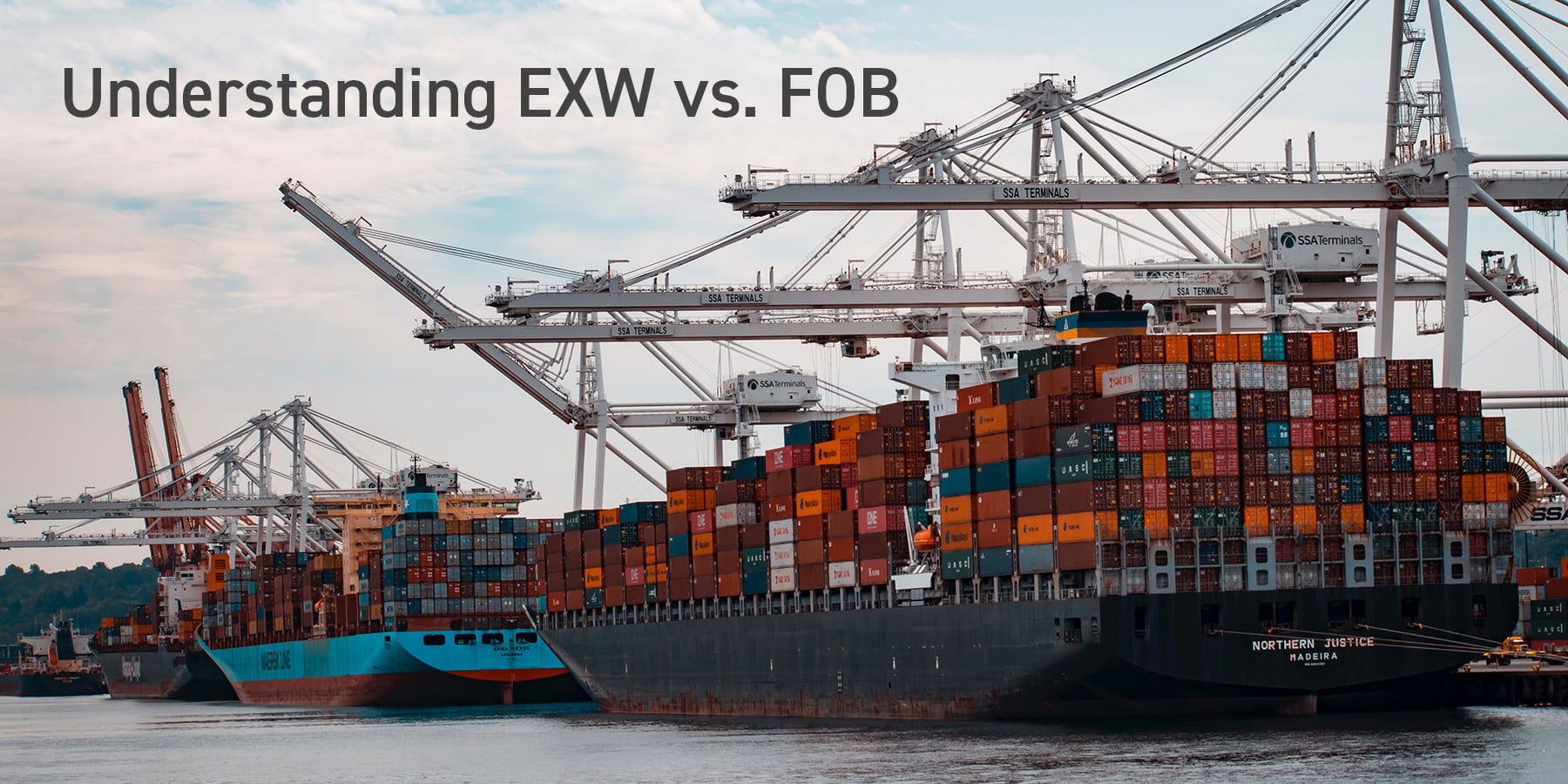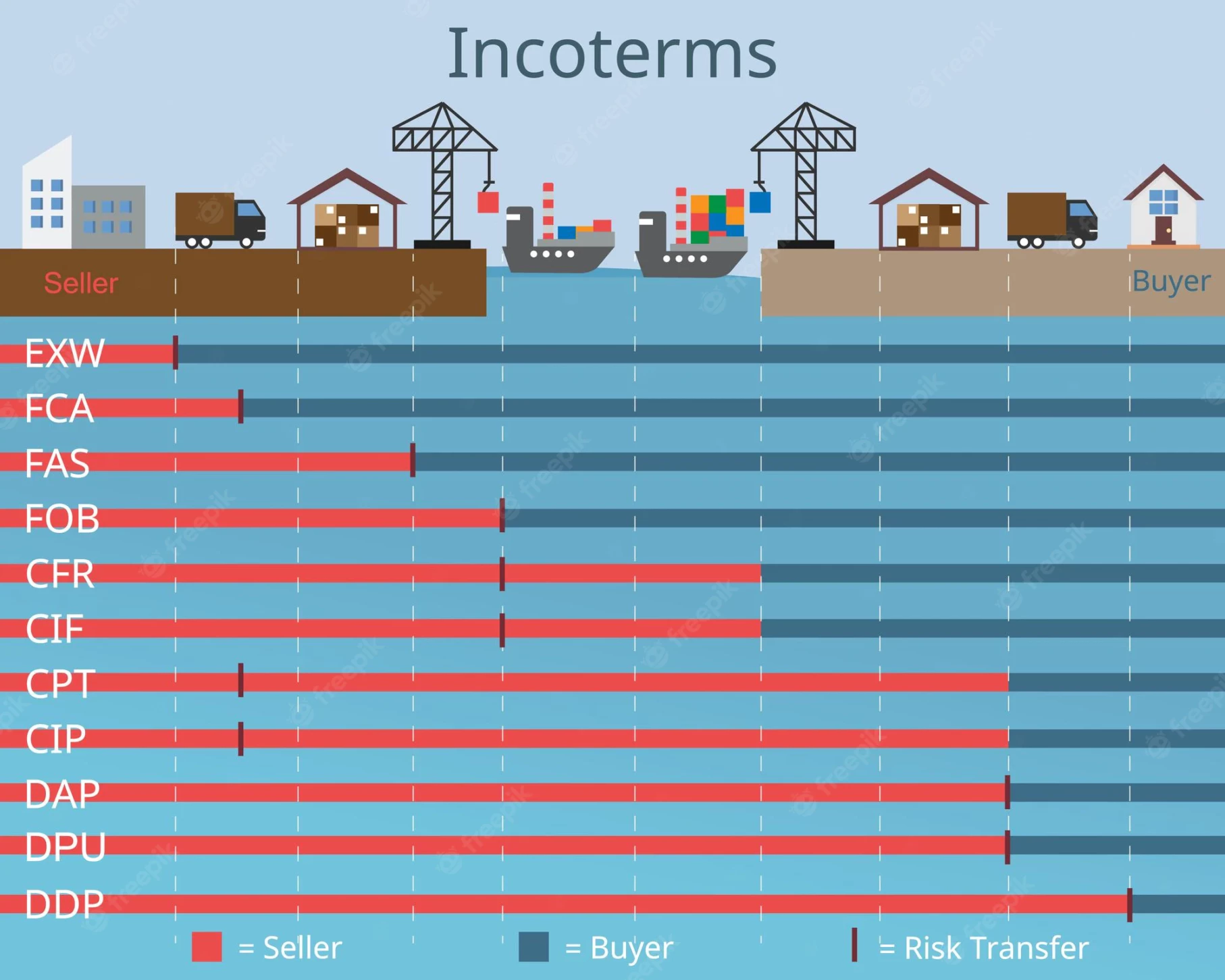
Understanding the Incoterms EXW and FOB in global trade is essential for successful freight and transport operations. EXW (Ex Works) and FOB (Free on Board) are two of the most commonly used Incoterms used to define the rights and responsibilities of each party involved in the sale of goods. Understanding the differences between the two terms is essential to ensure the proper management of goods and payment during international transactions. This guide will provide an overview of both terms, the conditions they involve, and the advantages and disadvantages of using each one.
What is EXW?
EXW stands for “Ex Works.” Ex Works is a term used in a sales contract and means that the seller will be responsible for everything regarding the shipment until the goods are finished and ready to be shipped from their location. The seller will be responsible for the cost of transportation, insurance, and any applicable taxes up until the point that the goods leave the mutually agreed Ex Works location. At this point, the buyer receives the goods and has full responsibility for the goods from that point. If there are any damages or other issues with the shipment before the goods are picked up, the seller must resolve the issue.
What is FOB?
FOB stands for “Free on Board.” FOB is also a term used in a sales contract and means that the seller is responsible for all costs and insurance of the goods until they are loaded onto the agreed transportation carrier’s vessel. Once the goods are loaded, the seller transfers all responsibility to the buyer. The buyer becomes the sole party responsible for all the costs, insurance, and other issues related to the transportation of the goods. Once the goods are unloaded from the transportation carrier at the buyer’s desired location, the buyer is still responsible for the goods. FOB is the most commonly used INCOTERM.
Advantages of using EXW
The seller must only provide the goods and have them ready for shipment on the day the goods are agreed to be picked up. The buyer is responsible for all other aspects and conditions of the sale, such as insurance, export, and freight. This is an excellent advantage to the seller, that doesn’t have to worry about anything besides having their goods ready. Ex Works is a free sales term that can be applied to all sales contracts. This means that the buyer can purchase goods from anywhere in the world under the Ex Works term. With EXW, the seller doesn’t have to worry about loading the goods onto a vessel or truck. This can be especially helpful if you sell a large number of generic goods that are easy for the buyer to export themselves. For the buyer, the most prominent advantage is that the buyer will have complete control of every aspect of the shipment.
Disadvantages of using EXW
When a buyer purchases goods under the Ex Works term, the buyer is responsible for picking up the goods at the seller’s location and transporting them to their destination. If the buyer is not used to international trade or operates in a new field or country, the complexity of buying Ex Works can be overwhelming. Ex Works might also complicate things for the seller as you cannot fully control when the goods leave your warehouse. The buyer will likely want to pick up the goods as fast as possible or use third-party logistic services that may require you to stay open late or even on weekends to accommodate them.
Advantages of using FOB
The main advantage for the buyer when using the FOB term is that the buyer doesn’t have to take care of the transportation from the warehouse to the carrier. This will ease the process tremendously, especially if you are sourcing from different origins around the world, where you don’t know the local transport operators. They seller will charge a slight premium compared to EXW, but unless you are an expert in logistics, this is almost always cheaper than if you have to arrange transportation yourself.
Many sellers prefer FOB to EXW as they can easily plan pickup with the transporters of their choice and will have a voice in the communication with the carrier.
Disadvantages of using FOB
There are a few disadvantages when using FOB. When a seller ships goods under the FOB term, they are responsible for the cost and insurance of transporting the goods to the transportation carrier. This can be expensive, especially when shipping goods internationally. The seller is also responsible for the loading of the goods onto the vessel, and the insurance covering this process. If the goods are damaged in any way during the transportation process, the seller may be held financially responsible.
Determining Which Incoterm is Best for Your Business
EXW and FOB are two of the most commonly used Incoterms. Ex Works and FOB are some of the most basic forms of responsibility shared between the seller and the buyer. If you’re involved in international trade or if you manufacture goods that will be exported to other countries, you will probably come across these terms in your sales contracts. You should have a basic understanding of what each term means and the advantages and disadvantages of using them. You will also want to consider the location of your business and the location of your customers. If you, as a seller, are located in Europe and your customers are in North America, consider using the Ex Works or FOB terms, which will leave the shipping responsibility on the buyer.
If you are interested in learning more about INCOTERMS consider reading our guide on CIP vs. CIF and DDP vs. DAP

